DUBAI: Growing up in Saudi Arabia’s coastal metropolis of Jeddah, Lama Al-Bluwi always felt somehow detached from her family’s bedouin roots in AlUla far to the north. Now her yearning for this rich cultural heritage has found expression in a remarkable fashion collection, which melds the traditional fabric designs of her ancestors with the latest modern trends.
Young Saudis across the Kingdom are looking deep within their own heritage for inspiration, and Al-Bluwi is no exception. The 23-year-old’s prizewinning collection debuted last winter, just months after she graduated in fashion design from Jeddah’s Dar Al-Hekma University.
“My inspiration was mainly bedouin heritage and I tried to depict heritage in a more fashionable and modern way,” Al-Bluwi told Arab News. A college prize for the Most Creative Fashion Collection motivated her to enter her designs for AlUla Season — a festival celebrating local creativity.
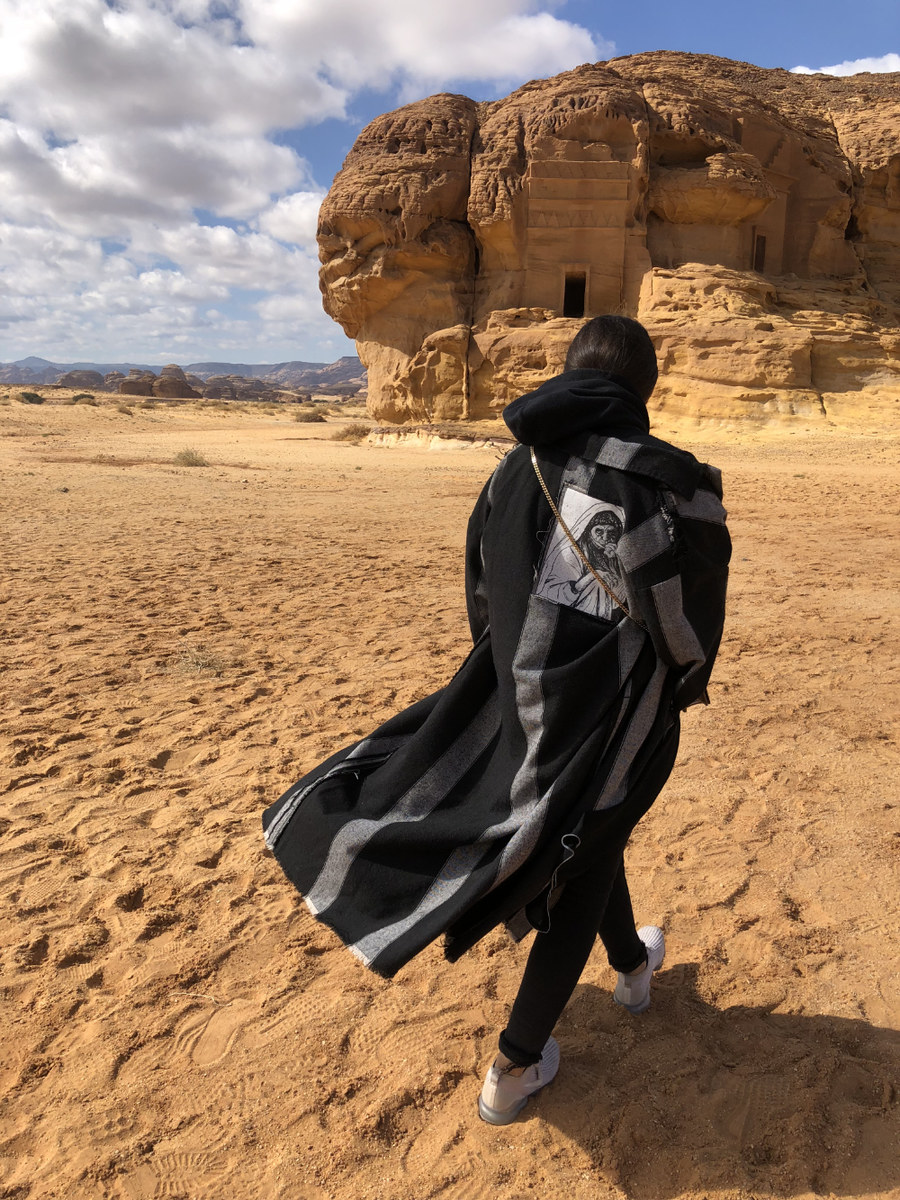
Born and raised in Jeddah, Al-Bluwi remembers traveling to the family’s farm in AlUla every winter while growing up. (Supplied)
What makes Al-Bluwi’s work distinctive are the hand-drawn portraits of the bedouin that she prints onto local fabrics, making her coats, jackets, crop-top hoodies and oversized T-shirts an instant hit on Instagram among customers tired of the more predictable high-street fare.
“I have always drawn bedouin portraits, so I mixed all my ideas to present a fashionable collection for my senior collection and my senior project at university,” she said.
Born and raised in Jeddah, Al-Bluwi remembers traveling to the family’s farm in AlUla every winter while growing up. She recalls with fondness the warmth of the local community and the proud culture of the bedu — nomadic Arabs who inhabit the region’s desert expenses. “I find something real in them and that sense of being, of authenticity and of realness inspires me,” she said.
“The simplicity of their life is what fascinated me. I find them very hardworking and very inspiring people in so many ways. They are very generous, and I love that. The way they appreciate their heritage is really touching and they find a lot of pride in where they come from.”
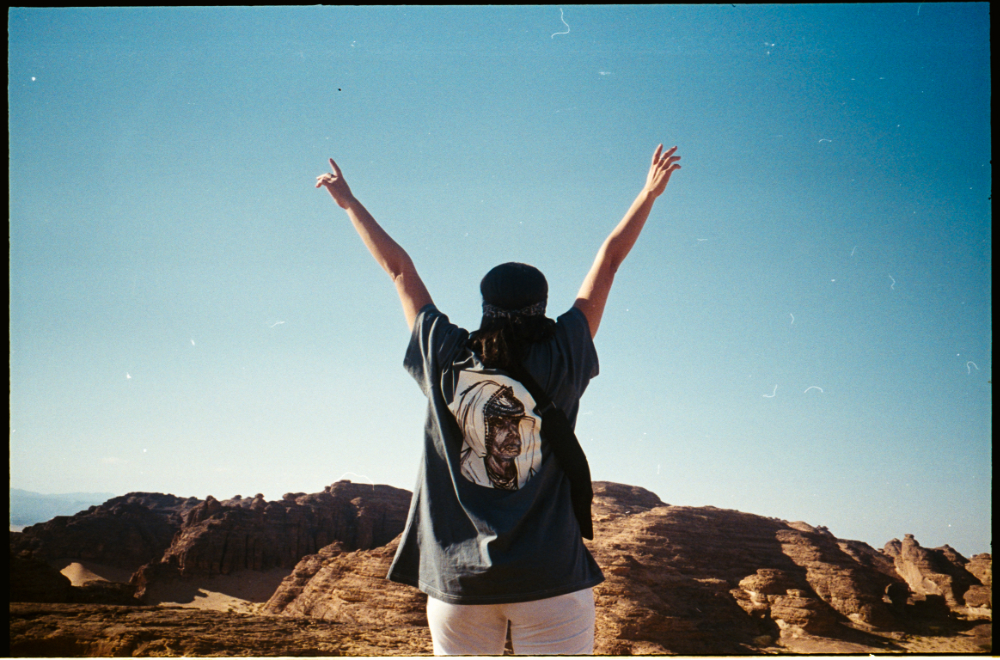
What makes Al-Bluwi’s work distinctive are the hand-drawn portraits of the bedouin that she prints onto local fabrics
AlUla is host to a breathtaking ancient walled city, packed with historic mud-brick and stone houses. Situated in the Madinah region of northwestern Saudi Arabia, it is also home to the Kingdom’s first UNESCO World Heritage site — the 2,000-year-old Nabataean wonder of Hegra, also known as Mada’in Saleh. Given AlUla’s increasing prominence as an archeological landmark on the Middle East tourist trail, the local population is naturally proud of their history and culture.
Despite the annual visits to her ancestral home, Al-Bluwi's childhood and early education in Jeddah left her feeling far removed from her heritage. Curious about her roots and eager to look beyond the cultural bubble of “the Jeddah scene” as she calls it, Al-Bluwi delved deeper into her origins.
This personal journey soon found creative expression. After an initial interest in the fine arts, encouraged by a love of sketching and family trips to European museums, Al-Bluwi discovered her passion for fabrics.
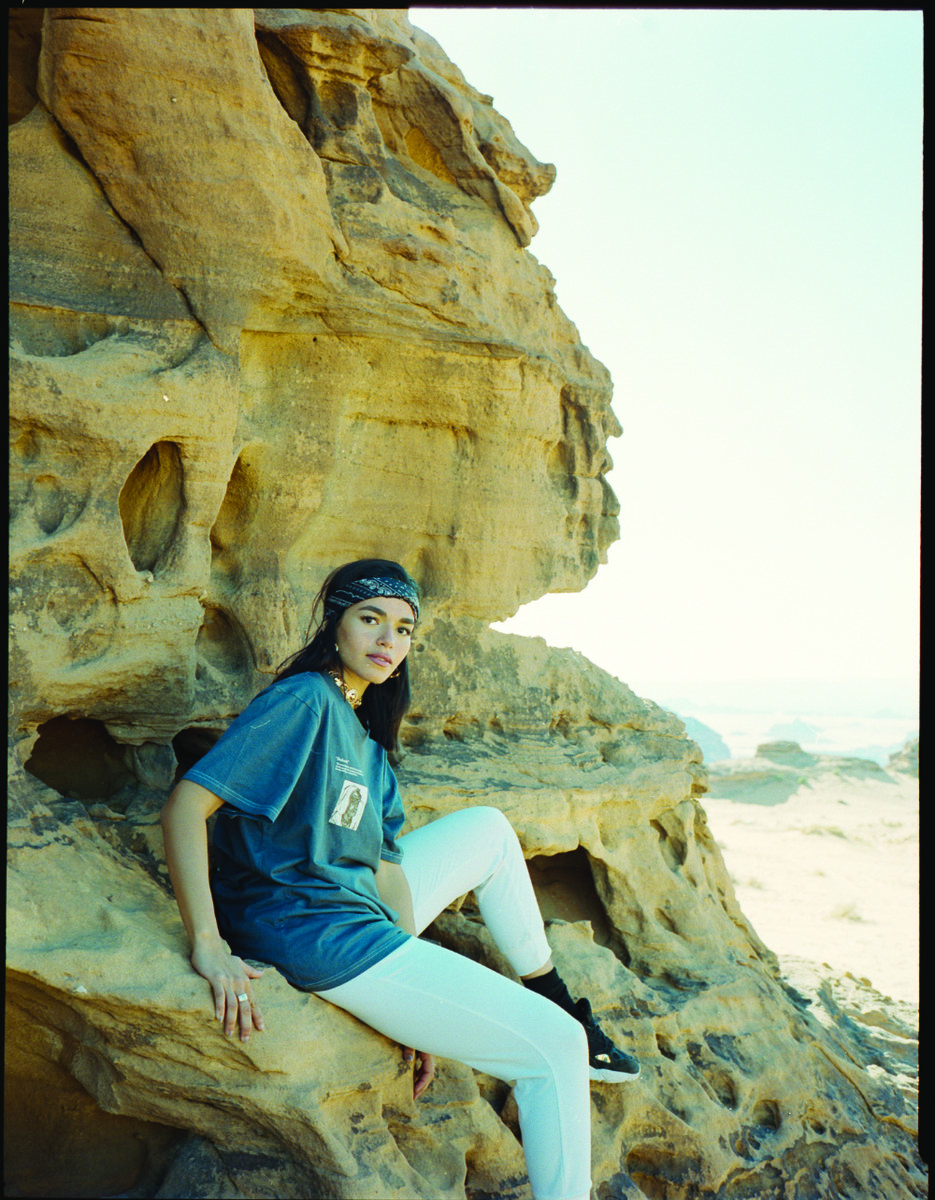
Fashion designer Lama Al-Bluwi’s creations salute her AlUla roots, above and inset, while hand-drawn portraits of bedouin, below, are a hit among customers. (Supplied)
“I used to beg my mother to go with me to a museum,” she recalled. “None of my family was interested but I made them go and they loved it, but I was the one who initiated it.”
And although AlUla and bedouin heritage form the foundation of her work, her designs were also influenced by a dash of Japanese culture, particularly the concept of wabi-sabi — the art of imperfection.
“Everything that is raw and imperfect is perfect, rather than being polished,” she said. “That was my main concept. When you see my garments, you will notice that the seams are inside out, and the edges are raw. I implemented the imperfections in my designs.”
A love of “weird, imperfect things” motivated her research. “I don’t like seeing something polished, so I started to go into the history of imperfection, and I came across this Japanese philosophy,” she said. “I read more about it, researched it and found it amazing.”
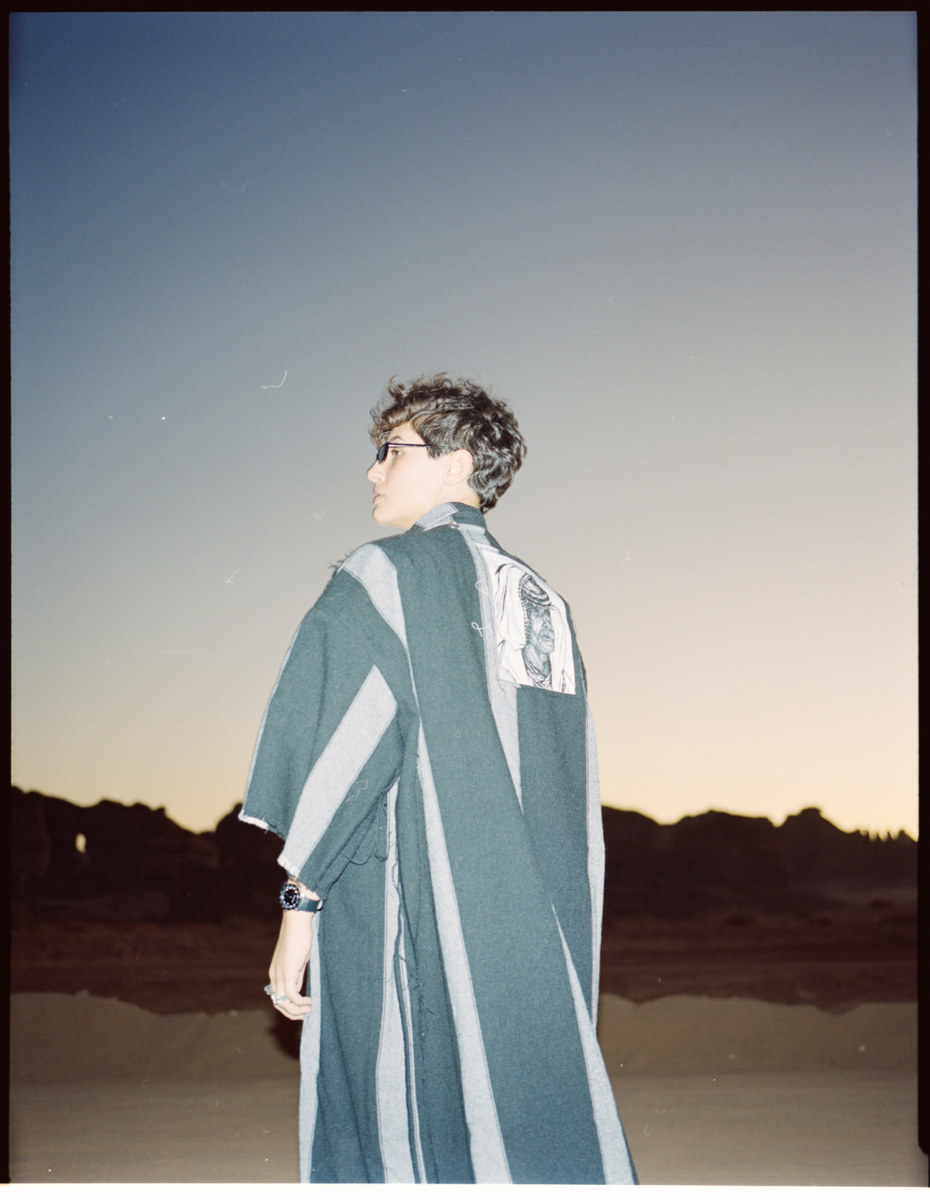
Lama Al-Bluwi's yearning for AlUla's rich cultural heritage has found expression in a remarkable fashion collection. (Supplied)
Al-Bluwi says there is no dearth of interest within Saudi Arabia in her creations, and many of her friends enjoy wearing them. “I love it when a product gives you a sense of identity or presents something to you,” she said.
At the same time, she hopes to make her mark beyond the Kingdom by spreading awareness of her culture and heritage near and far.
Despite the strain placed on small businesses and the fashion events calendar by the coronavirus pandemic, Al-Bluwi says her business is blossoming, with growing interest from abroad. “That people from other cultures find (my collection) interesting made me very happy,” she said.
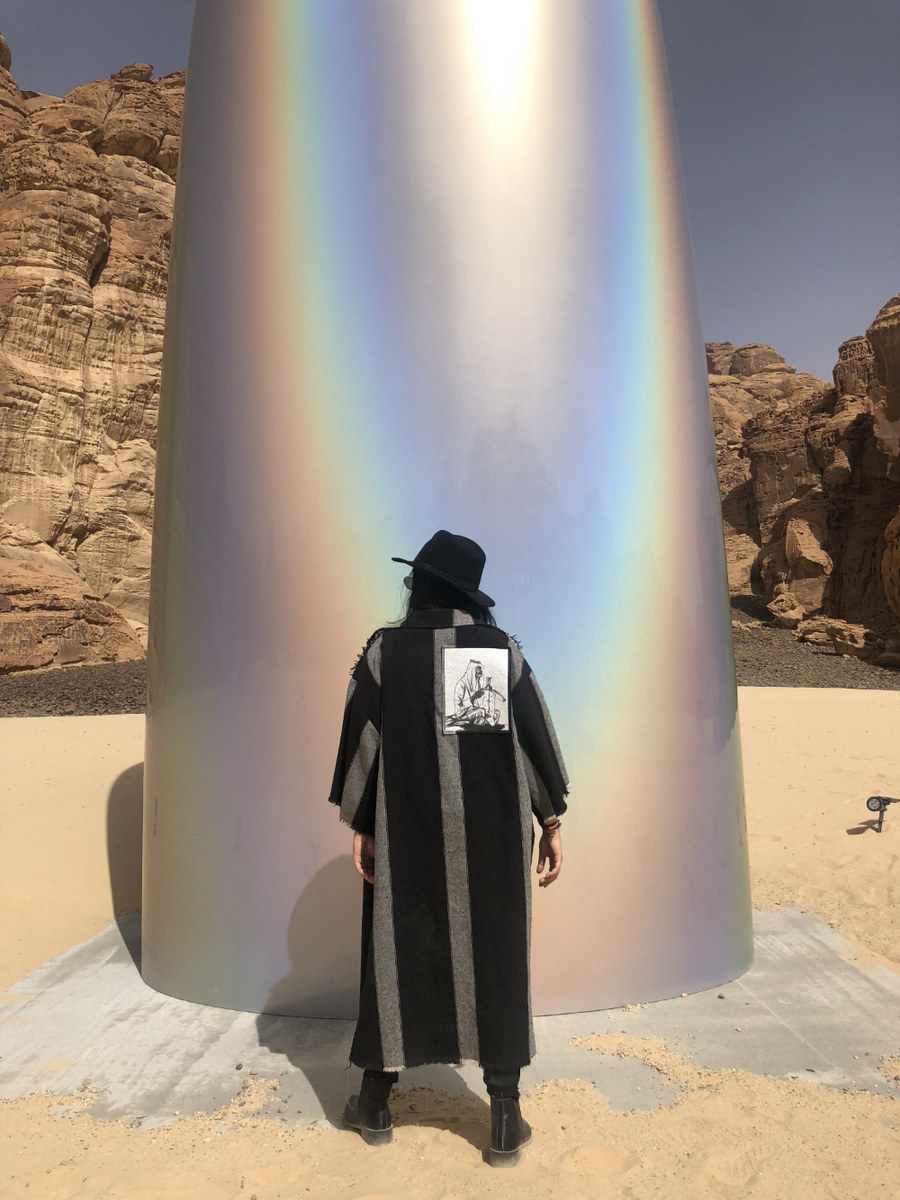
Lama Al-Bluwi's designs were also influenced by a dash of Japanese culture. (Supplied)
Catering for an international client base will not only help Al-Bluwi build her brand but also broaden the global appeal and appetite for Saudi Arabia’s bedouin heritage.
“It is important for us as artists or designers to change our perspective on that,” she said, referring to an earlier reluctance to engage with the global marketplace. “We are doing that slowly, but a lot of people have seen my collection, so we are going in the right direction.”
Although she has missed out on promotional events this year, the pandemic has given Al-Bluwi time to hone her skills and to learn from others in Saudi Arabia’s burgeoning fashion industry. “I have learnt that it is very important to have a really good platform or website where everyone can see your work, and not be over-depend on events,” she said.
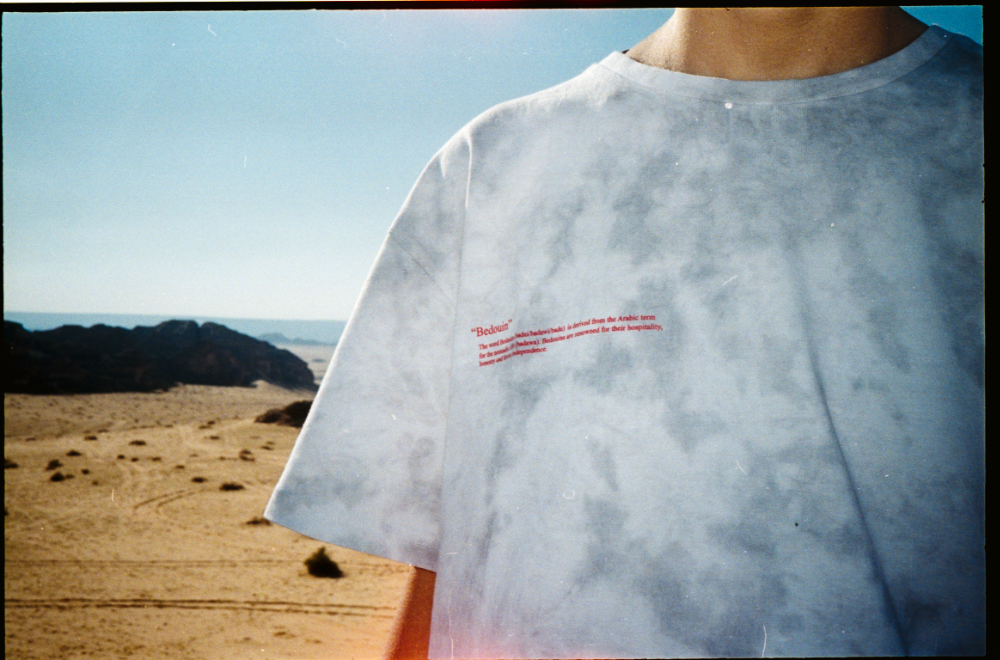
Young Saudis across the Kingdom are looking deep within their own heritage for inspiration. (Supplied)
With the Saudi government investing heavily in young entrepreneurs as part of its Vision 2030 economic diversification plan, Al-Bluwi is excited to see more designers spread their wings.
“I’m so happy to be alive at this time in Saudi Arabia. What they’re doing here is beautiful. They are supporting us in so many ways — not just in fashion but in a lot of sectors in the country,” she said.
“It’s a lovely thing to see. It makes us push ourselves even more in the best way possible and it makes me proud of all our talent because we truly all drive each other.”
Twitter: @CalineMalek






























